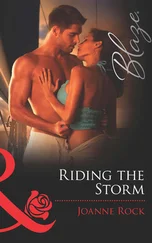The Conrail riders observed an unnatural calm. They were stretched out across the three-seaters with their luggage strewn carelessly around them. Paul always left things behind: watches, magazines, umbrellas. He borrowed articles and lost them. So he clutched F.F. #141, like it was a religious scroll or high-court decision, along with the November issue of Creem. And when the train rumbled down into the tunnel at 97th Street, and into the terminal, and when it disgorged its passengers with a sigh of hydraulic brakes, he was grateful to be a lone traveler, unencumbered with possessions or obligations.
Grand Central Terminal was deserted. The Kodak sign featured a happy, white family celebrating around a Christmas tree. As Paul had been instructed to do since he was a little boy, he found a spot against the wall and looked up at the stars on the ceiling. Sunk in dust and grime, the hulking simplicity of the constellations moved him. They were the imaginative work of another time. They were the superheroes of the past.
On the floor of the terminal, in the vast open spaces — bereft of the usual commuters — a platoon of men with blank faces and the cheapest spectacles sold books and records about meditation to the unsuspecting. Paul moved through them like a warrior.
Libbets Casey. Paul’s destination. Deep in that stronghold of the silent majority, the Upper East Side. Her dad didn’t have a job. He didn’t need one. At an office in midtown, which he paid for himself, he occasionally wielded a gold letter opener and moved around lunch appointments and tennis dates with other professional board members and consultants. Libbets wouldn’t have to work either. True idleness — ski-instructing, for example — was frowned upon in her family, but there was no need to hazard an office job. Generations of Caseys had pursued art collecting. They had donated a great number of cubist works, selected by Libbets’s savvy grandmother, to the Museum of Modern Art. The Caseys had also established the reputations of some nineteenth-century American painters — Eakins, Childe Hassam. Collecting was a more than adequate vocation. As were any of the arts-related pastimes. Her mother was a docent at the Metropolitan Museum, and her various older sisters and brothers, all of them out in the world now, were art historians and gallery owners. As long as Libbets kept painting, she was in good shape.
The doormen at 930 Park let Paul up without buzzing. He suspected that they, too, had enjoyed her company for a joint or a beer. Libbets was everybody’s friend. Her com-portment was flawless. She knew the kids who hung out in the Central Park band shell; she knew Adam Purple, the guy who shoveled horse shit in the park for his garden downtown; she knew David Cassidy, whose father lived in the building. The doormen at 930 had long hair and shifty smiles, the smiles of men uncomfortable with the way their fetching-and-carrying jobs stretched out in front of them. These countercultural doormen knew the difference between their station and Libbets’s, and they were ready for the first sign of condescension, just as they cherished the notion, like Libbets did, that the rich were just people, too. They could all share some dope. It was cool.
So one of the doormen asked Paul if there was a party.
Paul shook his head, mumbled.
He skidded out of that scrape and into the next one. The elevator opened right into the Caseys’ foyer. They had the entire fourth floor of 930 Park. Paul set his blazer on a chair in the front hall. His heart raced with the recollection of Libbets’s peasant dresses, with the smell of the skin lotion she used, with the lopsided way she smiled. Except for the dim stutter of the television down the hall, there was an austere stillness to the premises. The foyer was carpeted with antique Orientals and decorated with pre-Columbian urns and with small American impressionist paintings by artists recognizable from any day-camp art-appreciation course. The elevator slid shut behind him. Libbets called out cheerfully.
She came running out of the den. She slid, in stocking feet, across a bare strip of parquet.
— Excellent, she said. We were waiting! We? We were waiting? The revelation of that horrible plural struck Paul like a blow in the solar plexus. We? And yet he followed his hostess. Sure enough, in the den, he found Francis Chamberlain Davenport IV, cleaning an ounce of dope on an open copy of Six Crises by Richard M. Nixon.
All hope drained from Paul.
— You oughta read this, Hood, Davenport said dis-tractedly. All you need to know about the travails of life. Myself, I was just checking out about Alger Hiss and Checkers.
— You’re gonna leave the seeds in there? Paul said. In the binding like that?
— All will be revealed, baby. When the student is ready, the master will appear.
Libbets circulated nervously around the living room. Paul wondered if the two of them, Libbets and Davenport, had already collaborated in some afternoon sexual experiment. Even Libbets, in her secure and privately educated skull must have known how Davenport fucked him up.
— Flame on, he said.
— Huh? Libbets said.
— Awesome sleet and rain, Paul said. Far out. Let’s do some reef. Neither sleet nor rain will stay this courier. What’s on the idiot box?
— Lost in Space, Libbets said. Star Trek at seven.
— Moisture, moisture, Davenport said from his station. Moooiiiistuuuuure.
It was from this episode, this Lost in Space episode.
— Yeah, yeah, Paul said. Or remember that one where there were the guys with glittering, plastic bowlers. Zachary Smith was…
Davenport rolled a joint as carefully as if it were bomb disposal.
— Howdy, there, he said. You, young knight. Can you check on the mead? Can you sally forth and secure us some more mead?
— In the pantry, Libbets said. She pointed. Paul trudged disconsolately out into the foyer, past the living room where a portrait of the Caseys — Libbets was the youngest of the six, seated in her father’s lap — occupied most of a wall. He stood in the dark.
— No, that way, Libbets said, leaning out into the hall, slumped against the doorjamb. Take a right, through there.
— Just looking, Paul said. Got my “just looking” button on.
The pantry was long, empty, spotless. The banality of this kind of housekeeping made Paul uncomfortable. The place begged for the release of cockroaches or lab rats. It begged for finger-painted floors, tie-dyed curtains, for graffiti and noise pollution.
Paul was a third term, an unwelcome geometrical element. Davenport hadn’t even greeted him. And supernumerary was a feeling he knew as well as he knew that parched baby blue of Connecticut summer skies. Blundering in the kitchen, he felt sure that it would always be this way, this blunt little diorama of a life with its cessation of miracles would never change — except that it would get worse. Davenport wasn’t satisfied with his own charm. He wanted to inhabit his friends, to neutralize them. He wanted Paul’s socks and Paul’s records and Paul’s homework assignments and even Paul’s nuclear family with its 2.2 children and its five basic food groups and its pristine genetics. They were the best of friends, Davenport and Paul. This was what friendship was like.
Paul formulated his plan. He removed the cold six-pack of Heinekens from the refrigerator. He trudged out of the kitchen.
— Frankie opens them with his teeth, Libbets giggled, back in the library. This wasn’t news. It was part of Davenport’s arsenal of entertainments. Paul had tried the same trick on a couple of occasions, with painful results. He had settled for opening beers with house keys, which involved no bodily harm. Davenport, after licking the second joint and setting it aside, used his rear molars on a Heineken.
Читать дальше












